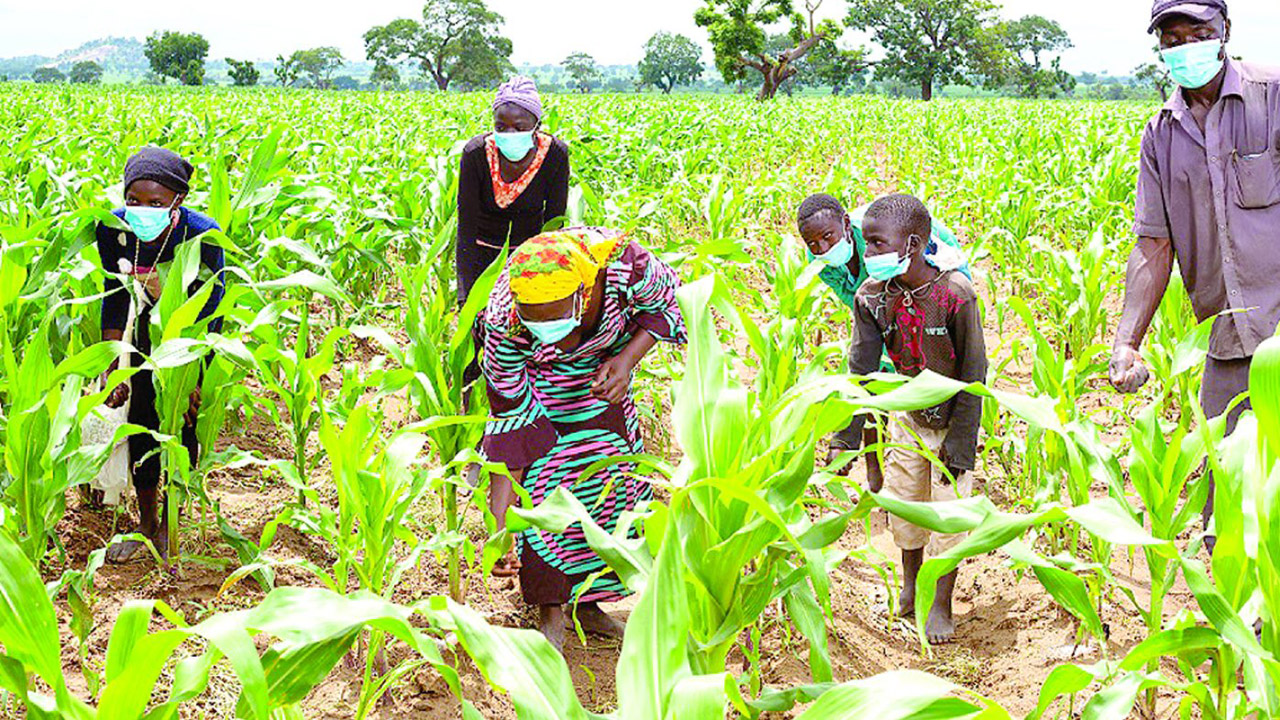
… As study shows cucumber, water melon, zobo leaves, tigernut now grown in South East in commercial quantities
Stakeholders in the agricultural sector have urged Nigerian farmers to adopt digital technology to mitigate the impact of climate change.
This is even as a study has shown that climate change has impacted crop growth with fruits hitherto planted in the North now grown and harvested in the South East in commercial quantities.
Speaking in Abuja yesterday at a national validation workshop on Promoting Digital Solution for farmers in Remote Communities to adapt to Climate Change in Nigeria, a representative of the European Union Delegation to Nigeria and ECOWAS, Programme Manager Agriculture, Hugh Briggs, pointed out that digital solutions present a viable pathway for empowering farmers to adapt to the impacts of climate change.
According to him, smallholder farmers play significant roles in ensuring food security, economic growth, and poverty reduction in the sub-region.
“We aim to build partnerships and collaborations that will leverage technology and innovation to create new opportunities for farmers, enhance their productivity and resilience to climate change.
“As a key partner to the Nigerian government, the EU has recently launched the Global Gateway strategy, in collaboration with the Nigerian government. The strategy will support the Nigerian government with programmes that are focused to end hunger, achieve food security and improved nutrition and promote sustainable agriculture practices,” he said.
The programme which was an EU-sponsored project in partnership with the University of Agriculture and Environmental Sciences Umuawo, Imo State, University of Agriculture Abeokuta and the Al-Hikmah University Ilorin, Kwara State, witnessed participation from government officials, development partners, private sector players and technology innovators.
In his address of welcome, the Acting Vice Chancellor, University of Agriculture and Environmental Sciences, (UAES) Umuagwo, Imo State (Lead Partner Institution), Prof. Christopher Eze, submitted that digital farms are more sustainable and efficient than traditional ones.
Prof. Eze highlighted the benefits of digital agriculture to include streamlined communication, effective monitoring, better documentation, more informed decisions which in turn saves time and money.
He stressed that bringing technology into the agricultural sector involves a wide range of strategies, including artificial intelligence, the Internet of Things, mobile technologies, and other digital solutions.
He said: “Digital technologies have the potential to provide farmers with the information and ability to address challenges and harness opportunities for growth thereby enhancing precision agriculture.
“Research has shown that significant economic, social, and environmental benefits are delivered through the application of digital technologies, thereby transforming agriculture by offering new opportunities to improve efficiency, policy, and the performance of the agricultural value chain as well as meeting the Sustainable development goals.
“It is expected that with the retinue of experts, policy makers and stakeholders in the agricultural and digital space who are seated here we would showcase concrete examples of technological innovations that aim at transforming subsistence agriculture to a more digitally compliance sector as well as come up with recommendation that add value to our study of agriculture in our tertiary institutions”.
In his presentation, the National Project Coordinator, Prof. Chris Emenyonu disclosed that climate change has impacted crop growth with fruits hitherto planted in the North now grown and harvested in the South East in commercial quantities.
Prof. Emenyonu who led the study in the Imo State, listed some of the crops being grown by farmers in the region in commercial value to include cucumber, water melon, Zobo Leaves (Hibiscus Flower), tigernut among others.
He named the distribution of climate change variables that led to financial losses for farmers to include: excessive rainfall, high temperature, pest infestation, late rainfall, whirlwind among others.
He urged farmers to intentionally build resistance against climate change and not wait for financial losses before adopting technology, even as he called on government to assist farmers in adopting technology.






